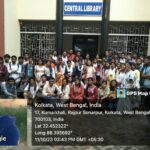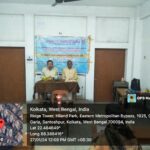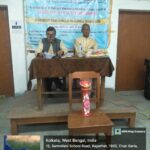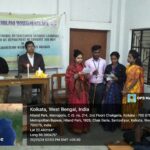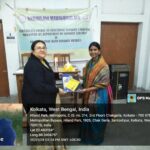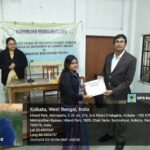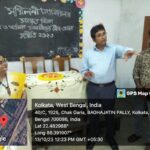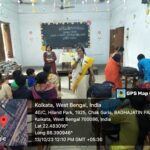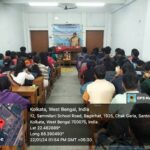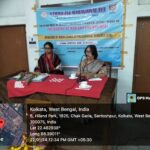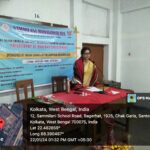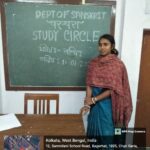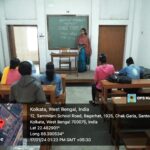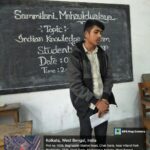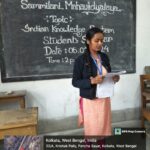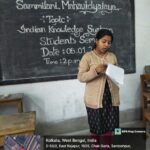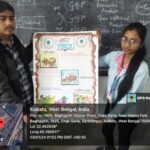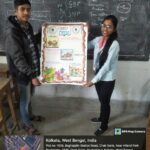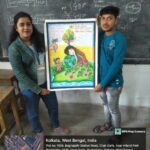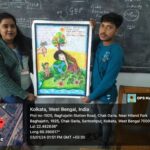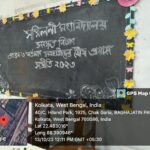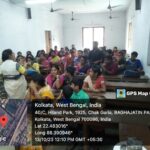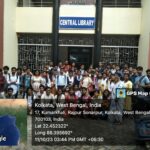- About the Department
- Faculty Profile
- Courses Offered
- PO and CO
- Certificate / Add-on Courses
- Teaching-learning
- Result and Student Progression
- Departmental Activities and Achievements
- Collaborative activities under MoU
- Alumni
- Photo Gallery
Mission
It is our mission to provide best learning atmosphere to our students so that they get ample scope to enroll themselves in higher academic filed. We want to inculcate values in our students which will become a key-factor to create an effective and self-reliant leader in future generation. We strive to create opportunities for them so that they are capable of imbibing proper knowledge and skill.
Vision
Our vision is to cater to the all round development of the students so that they became self sufficient citizen in our society. The department always tries to provide good educational atmosphere to our students for upliftment of their career because most of our students are belong to rural and poor economic environment of South 24 Parganas. We always tried to create a group of students who have zeal of knowledge better and dedicated himself or herself for upliftment of the society.
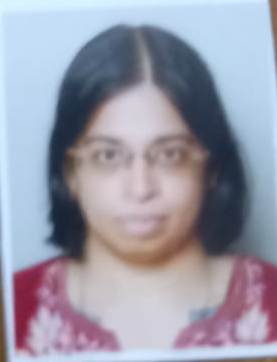
Dr. Sudeshna Basu
Designation: Assistant Professor
Email: sudeshnabasu.basu@gmail.com
Phone Number: 9830229327Get Detail »
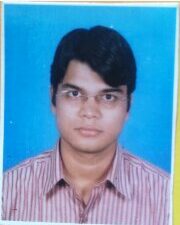
Dr. Partha Sarathi Bhattacharya
Designation: Assistant Professor
Email: parthakatwa.bhattachaya6@gmail.com
Phone Number: 9732067652Get Detail »
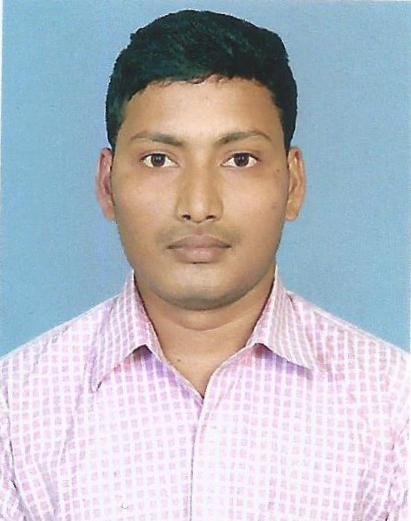
Sri Rajeswar Sardar
Designation: State Aided College Teacher
Email: rajyeswar.sardar@gmail.com
Phone Number: 7890372338Get Detail »
| Course offered | Course code | Duration | Examination system | Total credits |
| B.A Major in Sanskrit (with Research) | SANM | 4 years | Semester | Full Marks – 100 Theory (3 credits) = 75 marks Tutorial (1 credit) = 25 marks |
| B.A Major in Sanskrit (without Research | SANM | 4 years | Semester | Full Marks – 100 Theory (3 credits) = 75 marks Tutorial (1 credit) = 25 marks |
| B.A Multidisciplinary (MDC) with Sanskrit | MSAN | 3 years | Semester | Full Marks – 100 Theory (3 credits) = 75 marks Tutorial (1 credit) = 25 marks |
| B.A Interdisciplinary (IDC) in Sanskrit | MSAN | 6 months (in any one semester of 1 or 2 or 3) | Semester | IDC 3 Credits (25*3 = 75 Marks) Theory 2 credits (25*2 = 50 Marks) Tutorial 1 credit (25*1 = 25) |
PO1: After completing three years of Sanskrit Honours course students will be graduates having Sanskrit Honours degree. Their newly acquired knowledge helped them to survive in the field of higher studies in various multi-disciplinary streams
PO2: Various multi-disciplinary research works in the field of Indology have been providing a lot of opportunities which will also benefit them financially. Several universities around the world in the field of Indology has been providing well amount of fellowship for comparative studies. So students can easily apply for that to get higher benefits.
PO3: After completing graduation they will work in different fields related to translation. There are vast unpublished Manuscripts in the field of Sanskrit world; not to publish due to inadequate of Sanskrit translators
PO4: If possible after completing graduation they will also pursue B.ED degree and go for teaching at secondary or higher secondary Schools. Not only this, they will also pursue M. Phil or P.HD degree for higher studies.
PO5: Every year Google also take translators from English to Sanskrit for Digitalization. So, students of Sanskrit have huge opportunities to get chance in these before said fields.
PO6:Knowledge and language always interrelated with each other. A huge amount of ancient Indigenous texts were written in Sanskrit language. Naturally studying Sanskrit will open up various dimensions of Indian knowledge system so that students can easily relate ancient educational system with modern one. It will also help them to understand the socio-cultural diversities in India.
Programme Specific Outcome (PSO):
PSO1: Extensive knowledge of Sanskrit literature as well as acquisition of language will open up several dimensions of Sanskrit study which will benefit in their future studies such as Interdisciplinary, linguistic and modern AI field of knowledge.
PSO2: The course aims to train the students to learn and appreciate the linguistic diversities of India and not only that this will also help them to understand the core field of Indological studies. Several universities around the world in the field of Indology has been providing well amount of fellowship for comparative studies. It will also benefit them to uplift their innovation.
PSO3: The course also aims to explore them various unpublished work in manuscripts which has been written in different languages. It also helps them to translate from Sanskrit to colloquial language which becomes understandable to other persons who has interest in the field by did not understand because of less knowledge in Sanskrit language.
PSO4: They also do higher education according to their special interest which also be granted as a special contribution in higher study especially in the field of PHD or D.Litt. etc.
PSO5: Google also takes a large scale of translators in every year from for Sanskrit Digitalization. So, if they acquire a good knowledge of language they have huge opportunities to get chance in these before said fields
PSO6: Language, literature and cognition are interrelated with each other. A large amount of ancient Indigenous texts were in preserved because of inadequate number of translators. So if students are able to open up that closed door new light might be enlighten to us which will create a new history of our land, of our society as well as culture. Sanskrit will open up various dimensions of Indian knowledge system so that students can easily relate ancient educational system with modern one. It will also help them to understand the socio-cultural diversities in India.
Course Outcome (CO) under CBCS:
| Semester | Course Topic | Course Outcome(CO) |
| I |
CC1: Classical Sanskrit Literature (POETRY)
|
CO1
|
|
CC2: Critical Survey of Sanskrit Literature
|
CO2
|
|
| II |
CC3: Classical Sanskrit Literature (PROSE)
|
CO3
|
|
CC4: Self Management in the Gita
|
CO4
|
|
| III |
CC5: Classical Sanskrit Literature (DRAMA)
|
CO5
|
|
CC6: Poetics and Literary Criticism
|
CO6
|
|
|
CC7: Indian Social Institution and Polity
|
CO7
|
|
|
SEC-A-1: Sanskrit Writing Skill
|
CSECA1
|
|
| IV |
CC8: Indian Epigraphy, Paleography and Chronology
|
CO8
|
|
CC9: Modern Sanskrit Literature
|
CO9
|
|
|
CC10: Sanskrit World Literature
|
CO10
|
|
|
SEC-A-2: Spoken and Computational Sanskrit
|
CSECA2
|
|
| V |
CC11: Vedic Literature
|
CO11 · Students have acquired knowledge about the Vedic period, its knowledge system, meter, vast domain of literature
|
|
CC12: Sanskrit Grammar
|
CO12
|
|
|
DSE-A-1: Darśana
|
CDSEA1
|
|
|
DSE-B-1: Kāvya
|
CDSEB1
|
|
| VI |
CC13: Indian Ontology & Epistemology
|
CO13
|
|
CC14: Sanskrit Composition & Communication
|
CO14
|
|
|
DSE-A-2: Vyākaraṇa
|
CDSEA2
|
|
|
DSE-B-2: Veda
|
CDSEB2
|
PROGRAME AND COURSE OUTCOME OF SANSKRIT
UNDER CCF (Curriculum and Credit Framework)
Programme Outcome (PO)
PO1: After completing four year Honours and Honors with Research work students will be graduates and not that they have IDC (Inter disciplinary study) and also MDC which will enrich their field of knowledge.
PO2: Various multi-disciplinary research works in the field of Indology have been providing a lot of opportunities. Several universities around the world in the field of Indology has been providing well amount of fellowship for comparative studies. So students can easily apply for that to get higher benefits.
PO3: IDC and MDC studies will help them to provide inter-related knowledge which will explore their various fields of interest.
PO4: Knowledge and language always interrelated with each other. A huge amount of ancient Indigenous texts were written in Sanskrit language. Naturally studying Sanskrit will open up various dimensions of Indian knowledge system so that students can easily relate ancient educational system with modern one. It will also help the
Programme Specific Outcome (PSO)
PSO1: Four year honours with Research course will provide to the students to achieve knowledge especially in Research oriented work which will very good in research oriented activities.
PSO2: Course like IDC provided them interest in various multi-disciplinary studies which will provide them interest in higher researchable work
PSO3: Streams like IDC will give them to input about various kind of inter related knowledge which will help them to explore their thoughts in different academic fields
PSO4: various inter disciplinary studies with research wok will help them to nourish main streaming subject and not only that they have feel more interest to achieve better knowledge which will contributed in higher studies.
Course Outcome (CO) under CCF
| Semester | Course Title | Course Outcome(CO) |
| I |
General Grammar and Meter Unit I=Basic concept of General Grammar
Unit-II =METER |
CO1
|
| II |
History of Sanskrit Literature
Unit-I=History of Vedic Literature
Unit-II= History of Classical Sanskrit Literature
Unit III=History of Scientific and technical Sanskrit literature
Unit IV= Contribution of Scholars in the field of Sanskrit Literature |
CO2 · Students will gain knowledge about ancient history of Vedic literature and its modern implementation · History of Scientific literature will help them to provide knowledge about some scientific thoughts in ancient Indian society · Contribution of Scholars in the field of Sanskrit literature will help them to sustain the necessity of Sanskrit language in our modern society · It will help them to understand the evolution of Indian knowledge system |
Course Outcome (CO) under CCF OF IDC
| Semester | Course Title | Course Outcome(CO) |
| I |
A) Medical Science B) Music, Painting and Dance |
CO1
|
| II |
a) Mathematics and Astronomy b) Architecture |
CO2 · They have known about the ancient knowledge system of Mathematics and astronomy and its modern implementation · It will increase their field of interest in various interrelated ancient works which will also help in higher studies · Ancient Indian architecture or Vastu Vidya will help them to understand how our ancient science was developed and how we will implement in modern scenario
|
PROGRAME AND COURSE OUTCOME OF SANSKRIT
UNDER CCF (Curriculum and Credit Framework)
Three-year Multi-Disciplinary Courses of Studies
Programme Outcome (PO)
PO1: After completing three year multi-disciplinary course of studies students will be graduates which will enrich their field of knowledge.
PO2: Various multi-disciplinary research works in the field of Indology have been providing a lot of opportunities. Several universities around the world in the field of Indology has been providing well amount of fellowship for comparative studies. So students can easily apply for that to get higher benefits.
PO3: IDC studies will help them to provide inter-related knowledge which will explore their various fields of interest.
PO4: Knowledge and language always interrelated with each other. A huge amount of ancient Indigenous texts were written in Sanskrit language. Naturally studying Sanskrit will open up various dimensions of Indian knowledge system so that students can easily relate ancient educational system with modern one. It will also help the
Programme Specific Outcome (PSO)
PSO1: Three year multi-disciplinary course of studies will provide to the students to achieve knowledge especially in Research oriented work which will very good in research oriented activities.
PSO2: Course like IDC provided them interest in various multi-disciplinary studies which will provide them interest in higher researchable work
PSO3: Streams like IDC will give them to input about various kind of inter related knowledge which will help them to explore their thoughts in different academic fields
PSO4: various inter disciplinary studies with research wok will help them to nourish main streaming subject and not only that they have feel more interest to achieve better knowledge which will contributed in higher studies.
Course Outcome (CO) under CCF
| Semester | Course Title | Course Outcome(CO) |
| I |
General Grammar and Meter Unit I=Basic concept of General Grammar
Unit-II =METER Chandamanjari of Gangadasa |
CO1
|
| II |
History of Sanskrit Literature
Unit-I=History of Vedic Literature
Unit-II= History of Classical Sanskrit Literature
Unit III=History of Scientific and technical Sanskrit literature
Unit IV= Contribution of Scholars in the field of Sanskrit Literature |
CO2 · Students will gain knowledge about ancient history of Vedic literature and its modern implementation · History of Scientific literature will help them to provide knowledge about some scientific thoughts in ancient Indian society · Contribution of Scholars in the field of Sanskrit literature will help them to sustain the necessity of Sanskrit language in our modern society · It will help them to understand the evolution of Indian knowledge system |
| Sl. no | Session | Name of the certificate courses | Duration | Date of commencement | Number of participants |
| 1. | 2022-23 | Functional Sanskrit language course | 30hours | 14/11/2022-30/11/2022 | 21 |
| 2. | 2023-24 | Vocational Sanskrit language course | 30 hours | 8/1/2024-20/1/2024 | 28 |
- Traditional Lecture Method
- Applied teaching aid (Specific notes on particular topics)
- Supplemented Power Point Presentation with Projector.
- Remedial classes.
- Preparation of poster on different topics.
- External Lectures through blended mode
The Department of Sanskrit follows a well planned curriculum delivery process, the focal point of which is adherence to the Academic calendar of the college. In accordance with the time frame stated in the academic calendar, the Department designs its teaching plan and distributes the work load among the faculties. The Department successfully upholds the culture of regular class teaching and on time completion of the syllabus.
In its endeavor of imparting quality education, the Department has put emphasis on Outcome-based education (OBE). The outcomes of the programmes and the courses, offered by the Department are stated clearly on the college website, so that, the students can easily access it. These outcomes are also explained to the students during Departmental orientation programmer we are trying our best to ensure effective attainment of PO and CO. The Department attempts to blend both traditional and modern methods of teaching for better understanding and visualization, class lectures are substantiated with traditional methods. To make teaching-learning more interactive and student-centric, the department organizes-students Seminar, quiz on relevant issues, poster presentation etc. which help the students to develop presentation skills, Communication skills, foster research understanding and to showcase their work to a broader audience. Besides, every year, educational excursions are arranged for the students in such areas which are significant from holistic point of view.
Every year the department organizes remedial classes primarily for the weaker students. However, all students are allowed to attend the class, so that none of them could feel discriminated such classes mainly focus on elucidation of basic concepts and development of better learning habits.
A congenial environment is maintained within the Department, so that, the students can freely approach to the teachers both within and outside the class room to discuss their problems. The teachers always provide them with proper guidance as and when required. No doubt, such an environment facilitates the process of teaching-learning to a considerable extent.
DEPARTMENTAL LIBRARY:
Apart from the well-stocked central library of the college, the department maintains a departmental seminar library to provide additional reading materials to the students. At present there are more than 100 books in this seminar library which are regularly issued to the students. There is also a reading enclosure within the department for the use of the students. This departmental library plays an important role to nurture our students.
ICT FACILITIES:
We have taken several classes through ICT equipments with modern well decorated class room where power point presentations are done. Students are very satisfied to cope with process of modern education system.
The evaluation system followed by the department adheres to the guidelines and regulations framed by our affiliating university and the entire system is transparent. Under the Choice Based Credit System (CBCS), end semester examinations are held at the end of each of the six semesters by the University. As per the university rule, prior to each of these semester examination, the Department has to conduct internal evaluations. Under the CBCS curriculum, each paper comprises an internal component which accounts for 20% of the total marks assigned to a paper. Of these 20 marks, 10 is allotted to internal examination and the remaining 10 to attendance, in addition to this internal assessment as per the University schedule, regular class tests (both surprise tests and tests with prior notification) are conducted by the Department as part of the Continuous Intemal Evaluation (CIE) process. Besides, at the beginning of semester 1, an Entry Level Test is held by the department to assess the level of knowledge of the new entrants. On the basis of the performance of the students in this test, the Department categorizes them as weak learners and advanced learners and adopts teaching techniques accordingly. Remedial classes are organized for the weak students, whereas, students’ seminar, poster presentation, subject quiz and other interactive and participative activities are arranged keeping in mind mainly the advanced learners. However, the Department officially allows all the students to take part in such activities, to avoid discrimination. The Department provides the students with required assistance in case of any grievance regarding any examination related issue and if required, forwards the agenda to the Grievance-redressal cell or Examination sub-committee of the college. We will provide here last five years final examination results….
Result of 2018
| Name | Result Status | Year of passing |
| Riya Roy | 349 | 2018 |
| Mousumi Das | 379 | 2018 |
| Minati Sardar | 331 | 2018 |
| Bhaswati Mandal | 304 | 2018 |
| Minati Sardar | 375 | 2018 |
| Daliya Naskar | 327 | 2018 |
| Rahul Ruidas | 389 | 2018 |
| Pulak Mondal | 401 | 2018 |
| Alakesh Maha Patra | 434 | 2018 |
| Souvik Sarkar | 292 | 2018 |
Result of 2019
| Name | Result | Year of Passing |
| Priya Samul | 364 | 2019 |
| Susmita Giri | 376 | 2019 |
| Laboni Sardar | 466 | 2019 |
| Sona Das | 449 | 2019 |
| Priyanka Mondal | 433 | 2019 |
| Puja Mondal | 425 | 2019 |
| Sonia Mondal | 377 | 2019 |
| Malati Gayen | 403 | 2019 |
| Chameli Mondal | 428 | 2019 |
| Sima Barkandaj | 393 | 2019 |
| Sujata Kumar | 440 | 2019 |
| Paromita Naskar | 305 | 2019 |
| Ashim Sardar | 427 | 2019 |
| Palas Sardar | 373 | 2019 |
| Sudip Mandal | 336 | 2019 |
Result of 2020
| Name | Result | Year of Passing |
| Pratima Maiti | 542 | 2020 |
| Baisakhi Saha | 530 | 2020 |
| Tulika Chakraborty | 432 | 2020 |
| Piu Mondal | 542 | 2020 |
| Tithi Das | 474 | 2020 |
| Archana Makhal | 531 | 2020 |
| Riya Naskar | 463 | 2020 |
| Chumki Mandal | 485 | 2020 |
| Madhumita Mondal | 499 | 2020 |
| Tanusree Naskar | 493 | 2020 |
| Rima Halder | 448 | 2020 |
| Sayani Barman | 501 | 2020 |
| Sujay Mondal | 507 | 2020 |
| Suman Halder | 432 | 2020 |
| Soumya Gayen | 485 | 2020 |
| Shubhankar Nayek | 444 | 2020 |
| Prithiraj Sardar | 431 | 2020 |
RESULTS OF 2021
| Name | Total CGPA | Year of Passing |
| Priyanka Mondal | 8.453 | 2021 |
| Kamal Sardar | 7.256 | 2021 |
| Subha Das | 8.131 | 2021 |
| Sujit Sarkar | 8.134 | 2021 |
| Umashankar Mandal | 8.171 | 2021 |
| Sumita Biswas | 8.247 | 2021 |
| Aurp Mondal | 8.3 | 2021 |
| Ratna Mondal | 5.571 | 2021 |
| Dipanjali Roy | 8.41 | 2021 |
| Atish Mandal | 8.353 | 2021 |
| Suparna Jana | 8.204 | 2021 |
| Lata Maity | 8.209 | 2021 |
| Payel Dhara | 8.394 | 2021 |
| Sudipta Baidya | 8.629 | 2021 |
| Jayshree Sardar | 8.507 | 2021 |
| Anita Das | 8.18 | 2021 |
| Atshi Dutta | 8.15 | 2021 |
| Sudipta Sardar | 8.651 | 2021 |
| Taneya Majumder | 8.578 | 2021 |
| Moumita Ghosh | 8.551 | 2021 |
| Moumita Naskar | 8.476 | 2021 |
| Haripada Sardar | 8.065 | 2021 |
| Keaya Sadhukhan | 8.432 | 2021 |
| Milan Prasad Mal | 8.401 | 2021 |
| Piyali Kayal | 8.336 | 2021 |
| Rahul Halder | 8.131 | 2021 |
| Arpita Adhikari | 8.292 | 2021 |
| Ankita Das | 8.04 | 2021 |
| Banita Bardhan | 8.064 | 2021 |
| Rimpa Ghosh | 8.092 | 2021 |
Result of 2022
| NAME | TOTAL CGPA | YEAR OF PASSING |
| Animesh Midya | 6.8 | 2022 |
| Ankita Sarkar | 4.65 | 2022 |
| Arpita Mandal | 6.269 | 2022 |
| Debdas Mandal | 6.955 | 2022 |
| Dipika Banerjee | 5.232 | 2022 |
| Nahida Ali | 5.804 | 2022 |
| Nisha Biswas | 5.666 | 2022 |
| Pallabi Mondal | 6.132 | 2022 |
| Piyali Sardar | 5.493 | 2022 |
| Ramkrishna Goswami | 6.314 | 2022 |
| Sampa Patra | 5.897 | 2022 |
| Saptadip Sardar | 6.252 | 2022 |
| Somsa Mondal | 5.881 | 2022 |
| Sudipa Mondal | 5.396 | 2022 |
| Susmita Deb | 5.895 | 2022 |
Result o f 2023
| NAME | TOTAL CGPA | YEAR OF PASSING |
| Rini Naskar | 7.094 | 2023 |
| Ujjayine Naskar | 7.534 | 2023 |
| Siya Das | 6.874 | 2023 |
| Rajesh Paik | 6.989 | 2023 |
| Rahul Biswas | 7.88 | 2023 |
| Nimai Sarkar | 7.378 | 2023 |
Analysis of result of the students
Department of SANSKRIT
Honors course:
2018 to 2023
|
Total no. of students appeared in final exam |
year |
Total no of the students passed in the exam |
Pass percentage |
| 19 | 2017 | 15 | 78.94 |
| 27 | 2018 | 27 | 100 |
| 21 | 2019 | 16 | 76.19 |
| 20 | 2020 | 18 | 90.00 |
| 32 | 2021 | 30 | 93.75 |
| 23 | 2022 | 15 | 63.21 |
| 22 | 2023 | 12 | 54.54 |
Every year, the department of SANSKRIT organizes departmental seminar with the helping hands of Alumni students which is very effective in out learning process. They have also participated in different social welfare programme of NSS unit of our college.
The students of the Department have been publishing departmental wall magazine entitled with VIVASVAAN. It is an annual publication to exhibit the creativity of the students as well as of the faculties. The magazine provides opportunity to the students to express their ideas, to grow literary taste, to enhance reading habit and to develop awareness about different pressing issues.
Every year, the department of SANSKRIT organizes departmental seminar with the helping hands of Alumni students which is very effective in out learning process. They have also participated in different social welfare programme of NSS unit of our college.
The students of the Department have been publishing departmental wall magazine entitled with VIVASVAAN. It is an annual publication to exhibit the creativity of the students as well as of the faculties. The magazine provides opportunity to the students to express their ideas, to grow literary taste, to enhance reading habit and to develop awareness about different pressing issues.
On 1.10.2019 the occasion of Vidyasagar Birth Ceremony, Alumni students of the department of Sanskrit was organized a special lecture on Contribution of Vidyasagar in our daily life where they donated books specially Barnaparicay with other tools to some children in slum areas around our college. The then time Principal Prof. Santiranjan Plachudury was present there. Children and their respected parents were also present on this occasion and we were very much happy to do this noble act to our society with the helping hands of our Alumni students.
Every year we have meet with our Alumni Students and tried to interact with them. This time Department of Sanskrit do organize some special activities with the helping hands of alumni students like some special academic lectures, extending helping hands towards other backwards people etc. Students of Sanskrit department has done great job both in academically and socially. First of all they have collected money and donate to some children in slum areas near to our college like books, pen, pencil with drawing tools etc. We have invited them and they collect this noble gift very gladly.
On 1.10.2019 the occasion of Vidyasagar Birth Ceremony, Alumni students of the department of Sanskrit was organized a special lecture on Contribution of Vidyasagar in our daily life where they donated books specially Barnaparicay with other tools to some children in slum areas around our college. The then time Principal Prof. Santiranjan Plachudury was present there. Children and their respected parents were also present on this occasion and we were very much happy to do this noble act to our society with the helping hands of our Alumni students.
It is our immense pleasure that our alumni students Smt. Hemlata Biswas was delivered her lecture rereading Sandhi and its implementation in modern syntax to our SEM I students on 17/01/2024 and 19/1/22024. This is a very relevant topic which is very implementable in modern linguistic phenomenon. It is also our endeavor to uplift our students in academic field so that they have become confident and make their own contribution to our students in a broader sense to our society.
ALUMNI ACTIVITIES LAST 5 YEARS (DEPARTMENT OF SANSKRIT)
| Session | Date | Alumni activities | Number of participants | Brief reports |
|
2019-20 |
1.102019 |
Community help programme |
(6th sem students SANA with pass out students) around 30 |
On the occasion of Vidyasagar Birthday our students distributed some tools like book of Varnaparicay, pencil, pastel etc to some children in our surrounding community which was well appreciated. |
|
2021-22 |
5th September, 2022 |
Teacher’s day celebration |
25 students (including faculty members) | They had celebrated teachers day through online mode (Google mode) during the COVID pandemic period |
|
2022-23 |
13.10.2023 |
Community help programme with special lecture programme |
Around 50 including alumni students | They had organized a special lecture programme on Bartaman prajaomno o adhunikata where Prof. Rohini Dharmapal had delivered her lecture on gender sensitization, social superstitions, women empowerment and other burning issues of our society. Students of our department also helped to some children with study tools in our surrounding community on that day. |
|
2023-2024 |
17.01.2024 and 19.01.2024 |
PARAMPARA: the Alumni study circle |
Around 5 students (CCF 1st year) |
Departmental ex-student Smt. Hemlata Biswas had delivered a special lecture on the topic of Sandhi and its modern implementation on syntax which was well appreciated to our present students.. |















